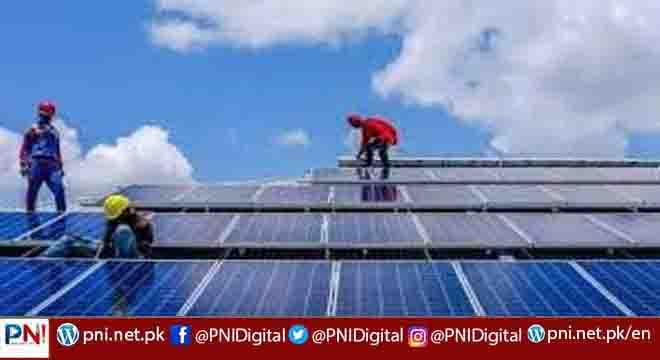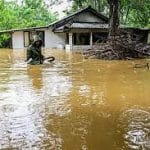ISLAMABAD, Mar 28 (APP):Executive Director, Sustainable Development Policy Institute (SDPI) Dr Abid Qaiyum Suleri on Tuesday said women in rural areas were not only burdened with the collection of bio-mass for energy but also suffered the health burden of respiratory diseases from the exposure to hazardous smoke.
He was speaking at SDPI’s seminar on “Women in Energy: Perspective on Clean Energy Transition”.
He said that gender-segregated data is a key element in gender affirmative responses and ensuring gender mainstreaming in climate policies as well as making substantial progress towards the SDG5 that calls for gender equality.
Research and Media Coordinator, Renewable First Annam Lodhi, stressed the role of social media in leveraging awareness of the women, climate and energy nexus.
She further suggested that a robust engagement with media can play a pivotal role in increasing awareness and raising the issue of gender disparity in energy access and participation of female labor in the energy sector.
Energy Specialist, World Bank Sadia Qayyum said that the energy policies in Pakistan have been traditionally blind to the differences in gender-wise energy consumption and the different impacts they have on genders.
She said that only 40% Pakistanis have access to clean cooking energy and the disparity worsens based on income levels and rural to urban divide.
She highlighted the high energy access disparity across the country and said that women in rural areas and lower income households are more vulnerable to lack access to clean energy, particularly in cooking.
Founder, Women in Energy Nameerah Hameed said that the energy sector globally is male-dominated and women account for only 4.6% of technical staff in the energy sector and 3.6% in administrative positions.
She stressed increasing participation of women in climate and development solutions, increasing their engagement in climate actions, and in public leadership roles leading climate responses.
She further said that women representation in country delegations must be increased to at least 50% at COP to mainstream gender equality in leadership positions.
Program Manager, Indus Consortium & Member, PREC Fiza Qureshi said that rural women spend most of their time at home shouldering the entire burden of household chores making them highly vulnerable to energy poverty.
She stressed that the transition to clean energy in Pakistan must include solar power cooking appliances for the feminist just energy transition in Pakistan.
She suggested that international financial institutions such as should consider debt to climate swaps and reallocate them to increase access of rural flood-affected women to energy, education and livelihoods.
Senior Research Economist, PIDE Afia Malik called for long-term integrated institutional and political measures to create a strong foundation of sustainable economic empowerment of women, especially in rural areas.
She said that this is crucial to enable them to adopt clean energy solutions and play effective part in climate change mitigation.
She further said that large segment of rural women do not have CNICs which hinders their access to financial services for clean energy solutions and from access to digital services including risk sharing facilities, credit lines, and insurances.
Visiting Research Fellow, SDPI Dr. Hina Aslam said that progress towards the achievement of SDGs will only be slowed down if women are not engaged and empowered.
She stressed on not just equality but inclusivity to ensure a just and economically viable energy transition.
She suggested that clean energy programs must also include transgender persons and not leave anyone behind for a just transition.
Follow the PNI Facebook page for the latest news and updates.









